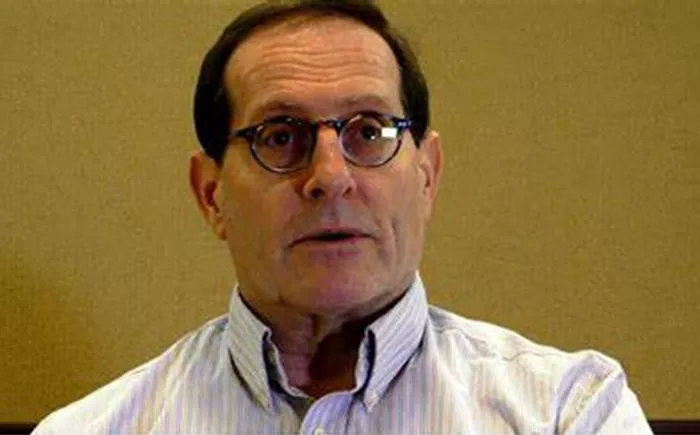In the realm of mental health and psychiatric care, terms like “5150 psychiatric hold” are often used but not always fully understood by the general public. For individuals experiencing a mental health crisis or for their families and loved ones, understanding what a 5150 psychiatric hold entails can be crucial for navigating the system. This article aims to provide a thorough and detailed explanation of what a 5150 psychiatric hold is, its legal aspects, the criteria for its use, its implications, and the steps individuals and families can take if they find themselves involved in a 5150 hold situation.
What is a 5150 Psychiatric Hold?
A 5150 psychiatric hold refers to a legal term used in California under the California Welfare and Institutions Code Section 5150. This section grants authorized professionals—such as law enforcement officers, mental health clinicians, and certain medical personnel—the authority to involuntarily detain individuals who are experiencing a mental health crisis. The purpose of this detention is to provide the individual with psychiatric evaluation and, if necessary, treatment to ensure their safety and well-being.
Specifically, 5150 refers to the section of the law that allows for the involuntary detention of individuals who are deemed a danger to themselves or others due to a mental illness, or who are gravely disabled due to a mental disorder. The law is designed to help people who may be unable to make decisions regarding their own care because of their mental health state.
While the 5150 hold is specific to California, the concept of involuntary psychiatric holds exists in various forms across the United States, although the terminology and criteria may vary from state to state.
Criteria for a 5150 Hold
To initiate a 5150 psychiatric hold, a person must meet at least one of the following criteria:
Danger to Self: The individual is at risk of harming themselves, which could include suicide attempts or thoughts, self-injury, or other behaviors indicating they are at imminent risk of harm.
Danger to Others: The individual is exhibiting violent or threatening behaviors that pose a threat to others. This may include physical violence, verbal threats, or other behaviors that suggest the person might harm others.
Gravely Disabled: The individual is unable to provide for their basic needs such as food, clothing, and shelter, due to a mental disorder. This can include situations where a person is found in a condition that renders them unable to function independently in society due to their mental illness.
Who Can Initiate a 5150 Hold?
Under California law, a 5150 psychiatric hold can be initiated by a variety of professionals, including:
Law Enforcement Officers: Police officers have the authority to detain someone they believe is experiencing a mental health crisis and is either a danger to themselves or others or gravely disabled.
Mental Health Professionals: Licensed clinicians such as psychiatrists, psychologists, and licensed social workers can also initiate a 5150 hold if they assess the individual and determine that the criteria are met.
Emergency Medical Personnel: In some cases, paramedics or emergency room doctors can initiate a 5150 hold if they believe the individual is in immediate danger due to mental illness.
How Long Can Someone Be Held on a 5150 Hold?
A 5150 psychiatric hold is typically limited to a 72-hour period. During this time, the individual is evaluated by mental health professionals to assess their condition and determine if further treatment is necessary.
The 72-hour hold is intended to give the individual the time and opportunity to be evaluated and treated in a safe environment. At the end of the 72 hours, the individual may be released, or they may be held longer if additional care is needed. The individual may be held for an additional 14 days under a 5250 hold, which is a certification for intensive psychiatric treatment.
However, the decision to extend the hold is subject to a hearing, and the individual has the right to challenge the extension.
What Happens During a 5150 Hold?
Once a 5150 psychiatric hold is initiated, the individual is taken to a hospital, psychiatric facility, or mental health facility for evaluation and treatment. The following steps typically occur during a 5150 hold:
Initial Evaluation: Upon arrival at the facility, a psychiatric professional will conduct an assessment to determine if the individual meets the criteria for a 5150 hold. This evaluation will include interviews, mental status assessments, and sometimes physical exams to rule out medical conditions that may mimic psychiatric symptoms.
Treatment and Observation: During the 72-hour hold, the individual will be monitored for their safety and wellbeing. If the person is experiencing symptoms of a mental illness, the facility may provide medications, therapy, and other interventions as necessary.
Decision on Further Action: After the 72-hour period, a decision is made regarding the individual’s continued care. If the person is deemed to be stable, they may be released. If they require further care, they may be placed under an extended 14-day hold (5250), or they may be discharged with follow-up care recommendations.
Involuntary Medication: In some cases, individuals may be medicated involuntarily during a 5150 hold. This is done in order to stabilize the person enough to help them make decisions about their treatment. Involuntary medication may be administered only if a psychiatrist believes that the individual’s mental state requires it to prevent harm.
What Are the Rights of Individuals on a 5150 Hold?
People who are placed under a 5150 psychiatric hold have certain rights during their detention. These include:
Right to a Hearing: After the 72-hour period, the individual has the right to request a hearing to challenge their continued detention.
Right to Legal Representation: Individuals on a 5150 hold have the right to an attorney if they wish to contest the hold or any extension of it.
Right to Review: If an individual is placed under a 5150 hold and feels their rights have been violated or that the hold is unjustified, they have the right to challenge the hold in court.
Right to Medical Care: While under a 5150 hold, individuals have the right to receive appropriate medical and psychiatric care, and they must be treated with dignity and respect.
What Happens After a 5150 Hold?
After an individual is released from a 5150 psychiatric hold, they may be referred to outpatient services or follow-up care. In some cases, the individual may need to engage in long-term treatment, such as therapy, counseling, or medication management, to address any underlying mental health conditions.
It’s important to understand that a 5150 hold is not intended as a permanent solution but rather as a temporary emergency intervention to ensure the individual’s safety. Long-term mental health support may be necessary to prevent future crises.
What Are the Legal and Ethical Considerations?
The 5150 psychiatric hold has significant legal and ethical implications. It is a powerful tool for ensuring that individuals in psychiatric crisis receive the care and protection they need. However, it can also be a point of controversy, particularly when it comes to issues of personal autonomy and rights.
For example, placing someone under a 5150 hold against their will raises questions about the balance between protecting individuals who are a danger to themselves or others and respecting their right to make decisions about their own lives. As with any legal procedure, a 5150 hold must be applied judiciously and in accordance with the law, ensuring that individuals’ rights are upheld to the greatest extent possible while also providing necessary care.
Alternatives to a 5150 Hold
While the 5150 psychiatric hold is an important tool in psychiatric emergency care, it is not the only option available. In some cases, other approaches may be more appropriate for individuals in mental health crises. These may include:
Voluntary Admission: If the individual is willing to seek help, they may opt for voluntary admission to a psychiatric facility or receive outpatient care. Voluntary treatment can often lead to better outcomes because the individual is more likely to be engaged in their care.
Crisis Intervention Teams (CIT): Some law enforcement agencies use specialized teams trained in responding to mental health crises. These officers may be able to de-escalate situations without resorting to a 5150 hold.
Community-Based Support: Mental health professionals may offer community-based interventions, such as mobile crisis units, that provide care in the person’s home or community setting rather than a hospital.
Conclusion
A 5150 psychiatric hold is an important and often necessary tool for ensuring that individuals in a mental health crisis receive the care they need. By understanding the criteria for such a hold, the process involved, and the rights of individuals during this time, people can better navigate the complexities of psychiatric emergencies. For families and individuals, being informed about what a 5150 hold means can help alleviate some of the uncertainty and confusion that can arise during times of crisis, and allow for more effective decision-making in mental health care.
Related Topics
































